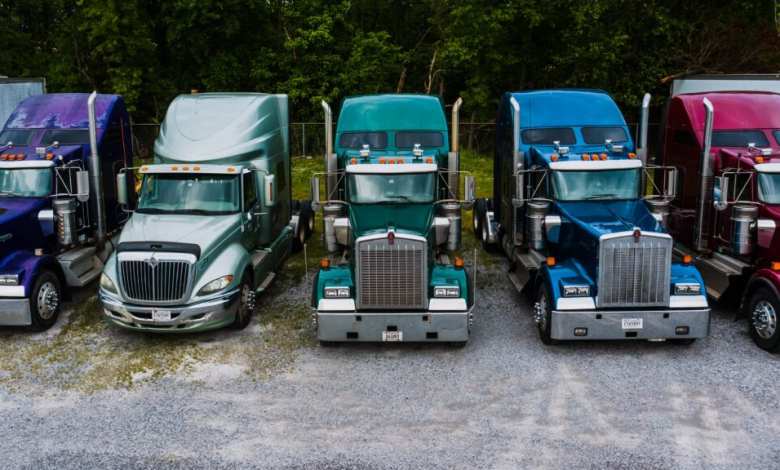Custom Trailers vs. Standard Models: What’s Better for Growing Fleets?

Fleet operators are facing more pressure than ever to scale efficiently, reduce costs, and meet a variety of cargo demands. As operations expand, one key question often arises: should a company stick with standard off-the-shelf semi trailers or invest in custom-built models? Both options provide distinct advantages along with potential trade-offs. The best choice depends on each fleet’s growth goals, delivery requirements, and operational complexity. Rhinotrail from China, a leading semi trailer manufacturer, supports fleet managers in evaluating these decisions with long-term performance and value in mind.
Speed vs. Specificity: Comparing the Purchase Process
For businesses needing to add equipment quickly, standard semi trailers offer a clear advantage. These models are mass-produced, widely available, and typically come with shorter lead times. They are ideal for general freight or fast-paced scaling where quick deployment matters. By contrast, custom semi trailers require more time to design and manufacture, but they provide a tailored fit for specific operational needs. Whether the priority is load speed, cargo type, or specialized routing, custom configurations offer more control. A semi trailer manufacturer like Rhinotrail often helps fleets weigh the trade-off between speed and customization to determine which approach supports their goals more effectively.
Custom Semi Trailers: Designed for Performance
Custom semi trailers are built around specific operational demands, often resulting in greater productivity. Features such as side doors, lift systems, reinforced floors, and optimized axle placement can help reduce load times, improve weight balance, and enhance fuel efficiency. These are not simply luxury features—they directly support performance improvements and can reduce damage and downtime. For fleets managing consistent or high-value cargo such as construction materials, machinery, or temperature-sensitive goods, custom trailers often deliver long-term value. Working with an experienced semi trailer manufacturer makes it easier to design units that match the exact conditions of a company’s routes and load profiles.
Standard Models: Reliable and Scalable
For logistics operations that prioritize volume, regional haulage, or diverse freight needs, standard semi trailers offer simplicity. They are easy to order in larger quantities, consistent across the fleet, and familiar to drivers and maintenance teams. Standard models support scalable growth by streamlining repairs, training, and inventory management. Many companies operating in food distribution or general freight continue to choose standard semi trailers for their predictable performance and availability. Even without specialized features, these trailers can serve as a strong operational foundation.
Cost Considerations: Balancing Upfront and Long-Term Value
Standard trailers generally come with a lower initial price point, which can be appealing during expansion. However, custom semi trailers may deliver a stronger return on investment over three to five years. Because these trailers are optimized for specific operations, they can reduce fuel usage, increase load efficiency, and minimize repair costs. The Total Cost of Ownership (TCO) becomes the more meaningful measure. A semi trailer manufacturer like Rhinotrail encourages clients to look beyond price tags and consider how each trailer performs over time. A smarter initial investment can often translate into substantial operational savings.
Maintenance, Upgrades, and Resale Factors
Standard models offer consistency, which simplifies maintenance and parts sourcing. Common components and familiar repair routines make service faster and more affordable. Custom trailers may require specialized repairs or parts, particularly if they include unique mechanical systems or configurations. However, well-built custom trailers that are tailored to cargo demands may require fewer repairs and less frequent service overall. As for resale, standard trailers are easier to sell in the secondary market due to their broad compatibility. Still, custom semi trailers can hold strong value if their features align with common industry requirements.
Which Trailer Strategy Fits Best?
Determining the right choice comes down to operational needs. If cargo is uniform, handling is complex, or efficiency is critical, custom semi trailers may be the right move. For companies that need to scale quickly or manage general freight, standard semi trailers often provide the needed flexibility. Many growing fleets find success with a hybrid strategy, blending standard units for day-to-day routes and custom models for specialized demands. Partnering with a knowledgeable semi trailer manufacturer allows companies to assess needs and develop a trailer mix that supports both immediate and future objectives.
Conclusion: Invest in Trailers That Grow with Your Business
The decision between custom and standard semi trailers is not about choosing one over the other. It is about understanding what works best for a fleet’s long-term strategy. Both types offer real benefits. The most successful logistics operations are those that align trailer selection with evolving business needs, route conditions, and load profiles. A well-planned trailer strategy, supported by an experienced semi trailer manufacturer, can improve efficiency, reduce costs, and position a company for scalable, sustainable growth.





